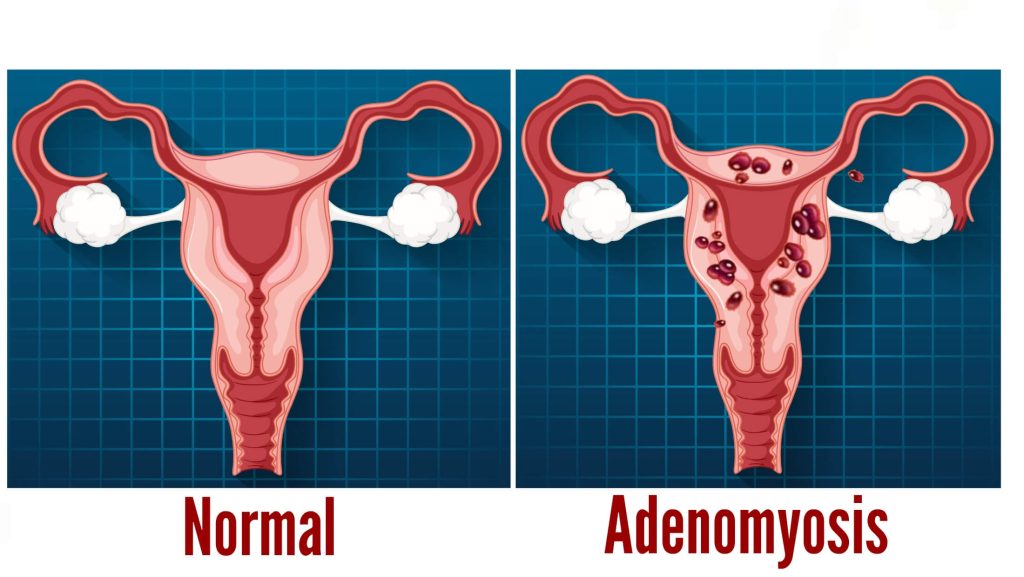
What is Adenomyosis?
The inner most region of the uterus is lined endometrial tissue which forms the endometrium (part of the uterus that is involved in embryo implantation). When this endometrial tissue grows into your myometrium (muscular wall of the uterus), it results in a condition known as adenomyosis. This condition causes thickening of the uterus and causes an enlarged uterus. As a result, you can face painful and heavy menstruation.
The exact cause of adenomyosis is not fully understood, however, the growth depends on the circulating estrogen present in a women’s body. Some speculations of adenomyosis include uterine trauma/ inflammation, genetics, hormones, or invasive tissue growth.
What are the symptoms of adenomyosis?
In some women, adenomyosis is associated with no signs or symptoms. However, some women can experience:
- Severe menstrual cramps
- Pelvic pain and discomfort
- Prolonged or heavy menstrual bleeding
- Painful sexual intercourse
- Abdominal tenderness and bloating
- Enlarged uterus
- Infertility
Am I at risk for adenomyosis?
Adenomyosis risk factors in women include:
- Women above the age of 40 years- due to the prolonged exposure to circulating estrogen
- Previous case of endometriosis
- Undergone any uterine surgeries (dilatation and curettage (D&C), C-section for childbirth, removal of uterine fibroid)
- Previous child birth
How is adenomyosis diagnosed?
Adenomyosis can be diagnosed and confirmed by performing a pelvic examination and a trans-vaginal ultrasound. These tests would show that the uterine wall has thickened and the pelvic region would be tender and painful to touch. An MRI would help depict uterine enlargement and thickening.
How can you treat adenomyosis?
Estrogen is a hormone that is naturally produced in your body that helps endometrial tissue growth. After a women reached menopause, adenomyosis symptoms usually go away naturally due to less circulating estrogen. To ease symptoms of adenomyosis like cramping or excess menstrual bleeding, pain medication or hormonal therapy like birth control pills can be prescribed. In some cases, surgery can be performed to remove adenomyosis from your uterine muscle (adenomyomectomy). If adenomyosis is left untreated, it can cause severe abdominal pain and heavy menstrual bleeding and subsequently lead to difficulty in conceiving and miscarriages as the embryo implantation process is hindered.

